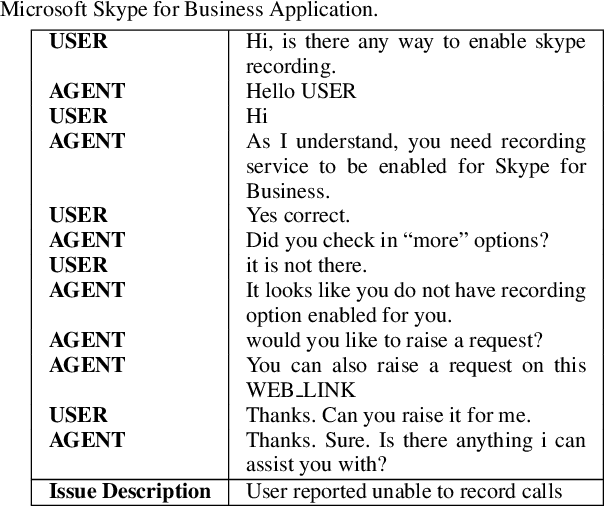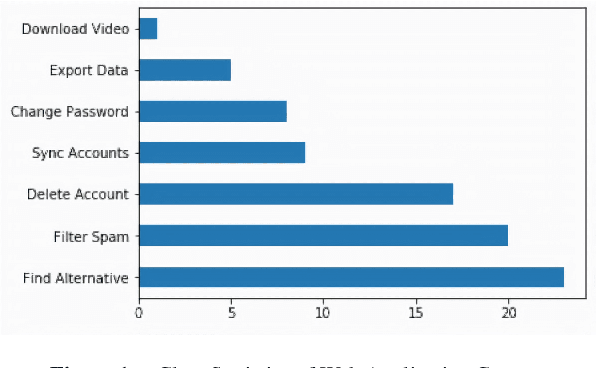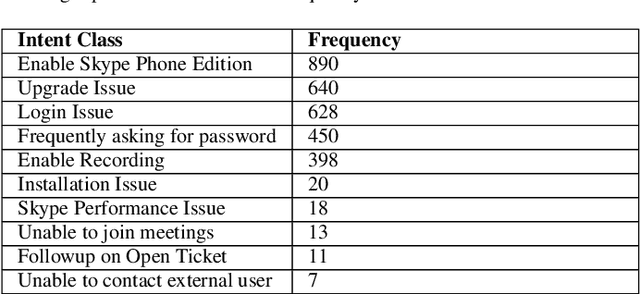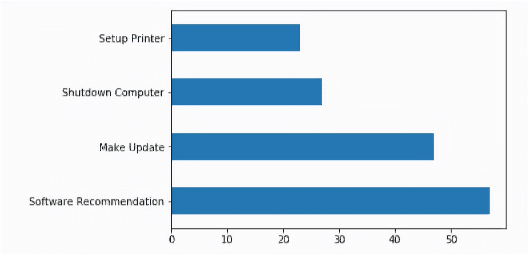Ajay Chatterjee
Intent Mining from past conversations for Conversational Agent
May 22, 2020



Abstract:Conversational systems are of primary interest in the AI community. Chatbots are increasingly being deployed to provide round-the-clock support and to increase customer engagement. Many of the commercial bot building frameworks follow a standard approach that requires one to build and train an intent model to recognize a user input. Intent models are trained in a supervised setting with a collection of textual utterance and intent label pairs. Gathering a substantial and wide coverage of training data for different intent is a bottleneck in the bot building process. Moreover, the cost of labeling a hundred to thousands of conversations with intent is a time consuming and laborious job. In this paper, we present an intent discovery framework that involves 4 primary steps: Extraction of textual utterances from a conversation using a pre-trained domain agnostic Dialog Act Classifier (Data Extraction), automatic clustering of similar user utterances (Clustering), manual annotation of clusters with an intent label (Labeling) and propagation of intent labels to the utterances from the previous step, which are not mapped to any cluster (Label Propagation); to generate intent training data from raw conversations. We have introduced a novel density-based clustering algorithm ITER-DBSCAN for unbalanced data clustering. Subject Matter Expert (Annotators with domain expertise) manually looks into the clustered user utterances and provides an intent label for discovery. We conducted user studies to validate the effectiveness of the trained intent model generated in terms of coverage of intents, accuracy and time saving concerning manual annotation. Although the system is developed for building an intent model for the conversational system, this framework can also be used for a short text clustering or as a labeling framework.
 Add to Chrome
Add to Chrome Add to Firefox
Add to Firefox Add to Edge
Add to Edge